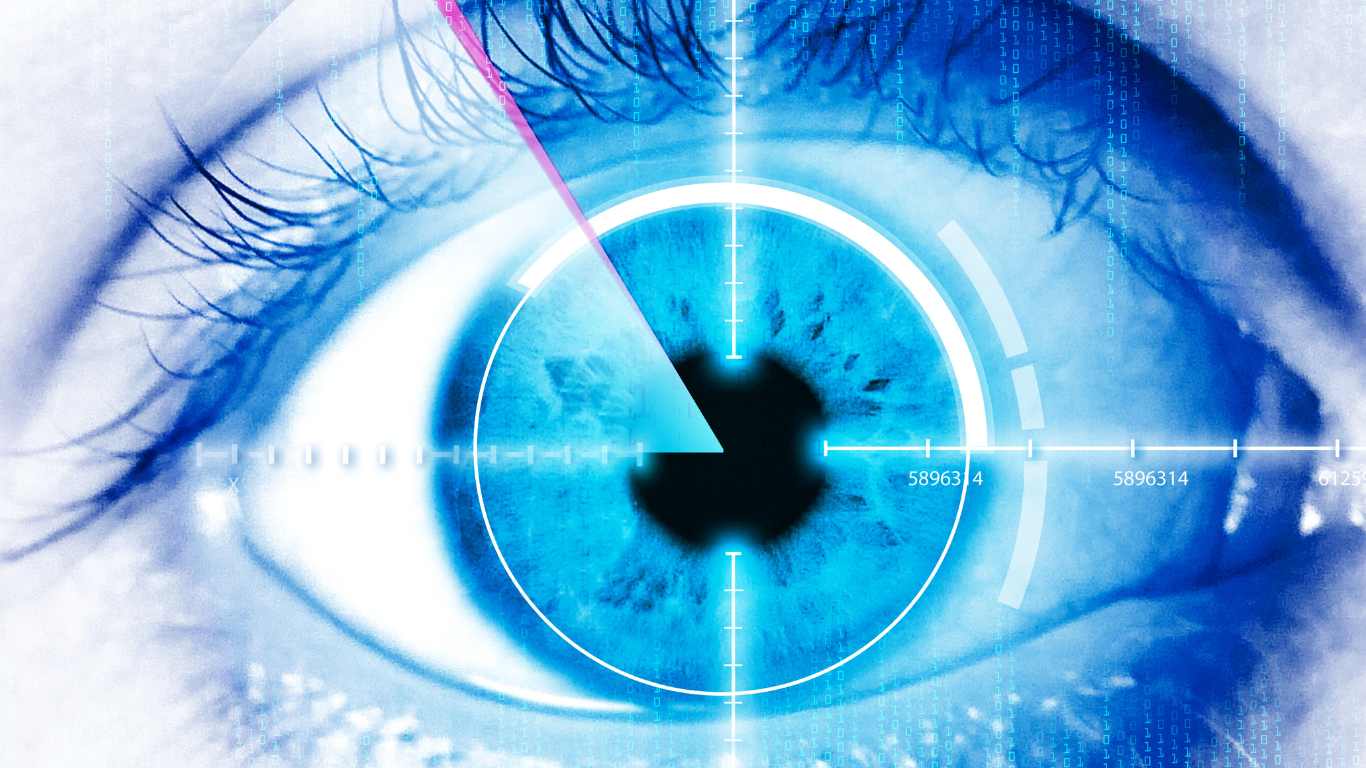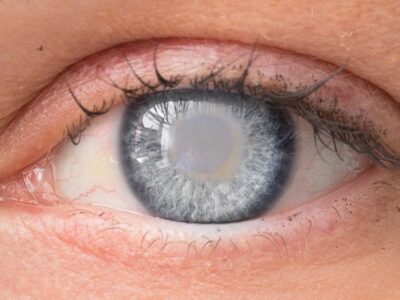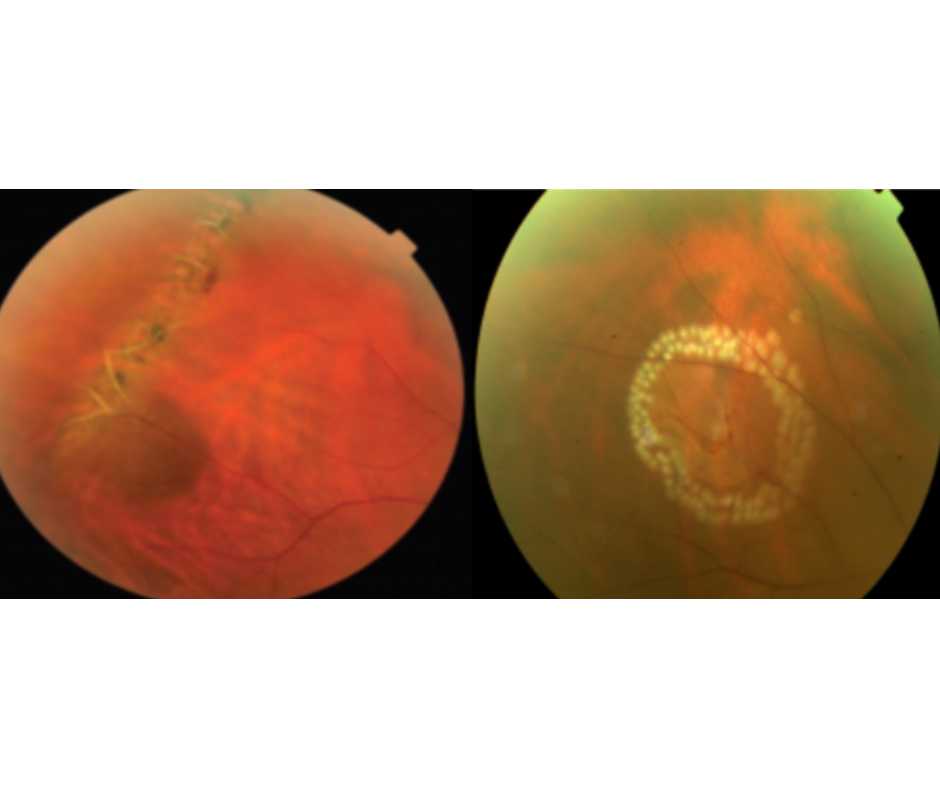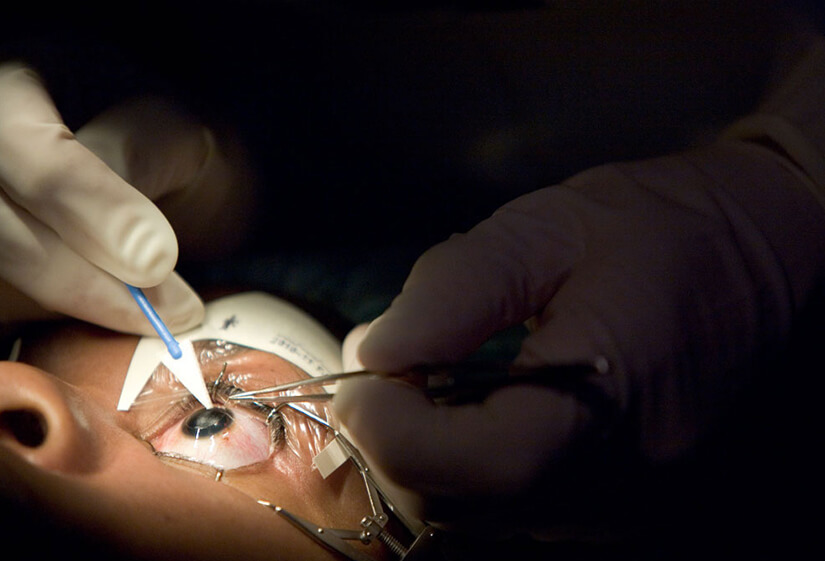Introduction: Understanding Laser Eye Surgery
People seeking freedom from glasses or contact lenses increasingly turn to laser eye surgery as a popular solution. It’s a quick, effective, and safe procedure that can correct vision problems such as nearsightedness, farsightedness, and astigmatism. But what exactly is laser eye surgery, and how does it work? In this article, we’ll delve into the different types of laser eye surgery, how it works, and what you can expect before, during, and after the procedure.
What is Laser Eye Surgery?
Laser eye surgery is a medical procedure that uses laser technology to correct vision issues by reshaping the cornea (the clear front part of the eye). By altering the shape of the cornea, laser surgery allows light entering the eye to focus more accurately on the retina, which improves vision. Doctors often perform laser eye surgery to treat refractive vision problems such as nearsightedness (myopia), farsightedness (hyperopia), and astigmatism.

Types of Laser Surgeries
There are several types of laser eye surgery, each designed to address different vision issues and provide patients with improved vision.
- People widely choose LASIK (Laser-Assisted in Situ Keratomileusis) to correct vision problems, making it the most popular laser eye surgery for reducing or eliminating dependence on glasses or contact lenses.
- PRK (Photorefractive Keratectomy) is a laser eye surgery that, like LASIK, corrects vision problems but differs in that it does not require the creation of a corneal flap. Instead, the surface of the cornea is gently reshaped to improve vision.
- SMILE (Small Incision Lenticule Extraction): SMILE is a newer, minimally invasive procedure that uses a laser to create a small lenticule (disc of tissue) inside the cornea, which is then removed through a tiny incision. It’s less likely to cause dry eyes compared to LASIK and may be suitable for people with specific corneal conditions.
How Laser Surgery Works
The process of laser eye surgery involves directing a highly focused beam of light to reshape the cornea. The laser targets specific areas of the cornea, where it either removes or vaporizes tissue. This alters the curvature of the cornea, improving the way light enters the eye and allowing for better focus on the retina.
Benefits of Laser Eye Surgery
Laser eye surgery offers numerous benefits, making it an attractive option for those seeking a permanent solution to their vision problems:
- Improved Vision Without Glasses or Contacts: The primary benefit of laser surgery is the potential to achieve clear vision without needing glasses or contacts.
- Faster Recovery and Less Pain: Since laser surgery is minimally invasive, the recovery time is generally quicker than traditional surgery, and the pain involved is minimal.
- Long-Lasting Results: Most patients experience permanent improvements in their vision, although some may need a touch-up procedure in the future.
Who is a Candidate for Laser Eye Surgery?
Laser eye surgery isn’t suitable for everyone. Ideal candidates typically meet the following criteria:
- Age and Vision Requirements: Candidates should be over 18 years old, and their prescription should be stable for at least one year before undergoing surgery.
- Medical Conditions: Certain conditions, such as severe dry eyes, corneal diseases, or uncontrolled diabetes, may disqualify a person from laser surgery. It’s important to have a thorough examination by an experienced surgeon to determine suitability.
Laser Surgery for Myopia, Hyperopia, and Astigmatism
Laser eye surgery can correct the three most common types of refractive vision problems:
- Myopia (Nearsightedness): LASIK and other laser surgeries can flatten the cornea to correct myopia, allowing light to focus properly on the retina.
- Hyperopia (Farsightedness): Hyperopia can be treated by steepening the cornea, which allows light to focus more directly on the retina.
- Astigmatism: Astigmatism is a refractive error that happens when the cornea has an uneven shape, leading to blurred or distorted vision. Laser surgery can reshape the cornea to allow for more even light refraction.
What to Expect Before Laser Eye Surgery
Before undergoing laser eye surgery, you’ll have a thorough consultation with your surgeon to assess your eye health and determine the best type of surgery for your needs. Your surgeon will conduct several tests, including measuring the thickness of your cornea, mapping your eye’s surface, and testing your vision.
Your doctor may give you instructions to follow before the procedure, such as avoiding contact lenses for a specific period or refraining from using certain eye products.
What Happens During Laser Surgery?
Laser eye surgery is typically done as an outpatient procedure, meaning you can go home the same day. The process usually takes around 15 to 30 minutes per eye. Here’s what to anticipate during the procedure:
- Preparation: You’ll lie down on an operating table, and the area around your eyes will be cleaned. To ensure a pain-free experience, the doctor will apply numbing eye drops before the procedure.
- Flap Creation (LASIK): For LASIK surgery, the surgeon will use a laser to create a thin flap in the cornea. This flap is then gently lifted to expose the underlying tissue.
- Laser Reshaping: The surgeon will direct a laser to reshape the cornea, based on the measurements taken during your consultation.
- Flap Replacement (LASIK): After the reshaping is complete, the corneal flap is carefully repositioned.
Aftercare and Recovery Post Laser Surgery
Recovery after laser eye surgery is generally quick. Many patients notice an improvement in their vision within just a day or two. However, there are several aftercare tips to follow:
- Avoid Rubbing Your Eyes: Refrain from rubbing your eyes, as it may interfere with the healing process.
- Wear Protective Eyewear: For the first few days, you may be asked to wear protective glasses while sleeping.
- Use Prescribed Eye Drops: Your doctor may prescribe lubricating eye drops to keep your eyes moist and prevent dryness.
Risks and Complications of Laser Surgery
While laser eye surgery is considered safe, there are some risks and potential complications:
- Dry Eyes: Some patients experience dry eyes following surgery, but this typically resolves within a few weeks.
- Glare or Halos: Some individuals may notice glare or halos around lights, especially at night.
- Infection: Though rare, infections can occur if proper aftercare isn’t followed.
Cost of Laser Eye Surgery
Here’s a price list for laser eye surgery in India, including different types of procedures and their approximate costs. Please note that these are average prices and may vary depending on the city, clinic, and surgeon’s expertise.
| Procedure | Price Range (Per Eye) | Description |
|---|---|---|
| LASIK | ₹40,000 – ₹1,50,000 | The most popular procedure for treating nearsightedness, farsightedness, and astigmatism. |
| PRK | ₹35,000 – ₹1,20,000 | A type of laser surgery where the outer layer of the cornea is removed and reshaped. Suitable for those with thinner corneas. |
| SMILE | ₹60,000 – ₹1,80,000 | A newer, minimally invasive procedure that treats myopia and astigmatism with fewer risks of dry eyes. |
| ICL (Implantable Collamer Lens) | ₹80,000 – ₹2,50,000 | For individuals with high prescriptions that are not suitable for LASIK or PRK. |
| RLE (Refractive Lens Exchange) | ₹75,000 – ₹2,00,000 | A treatment option for people with high refractive errors or presbyopia, involving lens replacement. |
| Femtosecond LASIK | ₹70,000 – ₹1,75,000 | A more advanced, bladeless version of LASIK using femtosecond laser technology for greater precision. |
Additional Costs:
- Pre-surgery Consultation: ₹1,000 – ₹5,000
- Post-surgery Care: ₹2,000 – ₹10,000 for follow-up visits and eye drops
- Retouching/Enhancement Surgery (if needed): ₹10,000 – ₹50,000 per eye
These prices are indicative and can vary widely depending on factors such as the technology used, the clinic’s location, and the experience of the surgeon. Always consult with the clinic for a detailed quote tailored to your specific needs.
Comparing Laser Eye Surgery to Traditional Eyewear
Laser eye surgery provides a permanent solution for those seeking to eliminate the need for glasses or contacts. Compared to traditional eyewear, laser surgery offers the benefit of clear, hassle-free vision, and most patients find it to be a cost-effective solution in the long term.
Advancements in Laser Eye Surgery Technology
Laser technology has advanced significantly over the past few years. New innovations like femtosecond lasers, wavefront-guided LASIK, and SMILE have made laser eye surgery more accurate and effective than ever before. These advancements help ensure better outcomes and reduce the risk of complications.
Choosing the Right Surgeon for Laser Eye Surgery
When considering laser eye surgery, selecting the right surgeon is crucial. Look for a surgeon who specializes in laser procedures, has a track record of successful surgeries, and uses the latest technology. Don’t hesitate to ask questions about their experience, success rates, and any concerns you might have.
Conclusion:
Laser eye surgery can be a life-changing procedure, offering freedom from glasses and contacts. However, it’s essential to consult with a qualified surgeon to determine whether you’re a good candidate for the surgery. By weighing the benefits, risks, and costs, you can make an informed decision about your vision care.
Author Details:
Dr. Sushruth Appajigowda holds a prominent position as a Cornea, Cataract, Glaucoma, and LASIK Surgeon in Bangalore. He serves as the chief Cataract and Refractive surgeon at Vijaya Nethralaya Eye Hospital, Nagarbhavi Bangalore. Renowned as one of the finest LASIK surgeons nationwide, he brings with him over 12+ years of experience across multiple LASIK platforms, including ZEISS, ALCON, SCHWIND, AMO, and Bausch and Lomb. Having successfully conducted over 5000 LASIK procedures, Dr. Sushruth holds the title of a Certified Refractive Surgeon and a Fellow of the All India Collegium Of Ophthalmology. Furthermore, he stands as a distinguished speaker at various National and International Forums, using his expertise to guide you in selecting the most suitable procedure based on your health requirements.

http://vijayanethralaya.com/link-in-bio/
FAQs
1. How long does it take to recover from laser eye surgery?
Most patients experience improved vision within 24 to 48 hours, but full recovery can take a few weeks.
2. Can I drive after laser eye surgery?
Many patients can drive the day after surgery, but it’s important to follow your surgeon’s advice and attend follow-up appointments.
3. Is laser eye surgery painful?
Laser eye surgery is usually painless due to numbing eye drops. Any discomfort typically subsides within a few hours.
4. Can laser eye surgery treat all types of vision problems?
Laser eye surgery can treat common refractive errors like nearsightedness, farsightedness, and astigmatism, but it may not be suitable for people with certain eye conditions.
5. How much does LASIK surgery cost?
The cost of LASIK surgery typically ranges from $2,000 to $3,000 per eye, depending on various factors.












